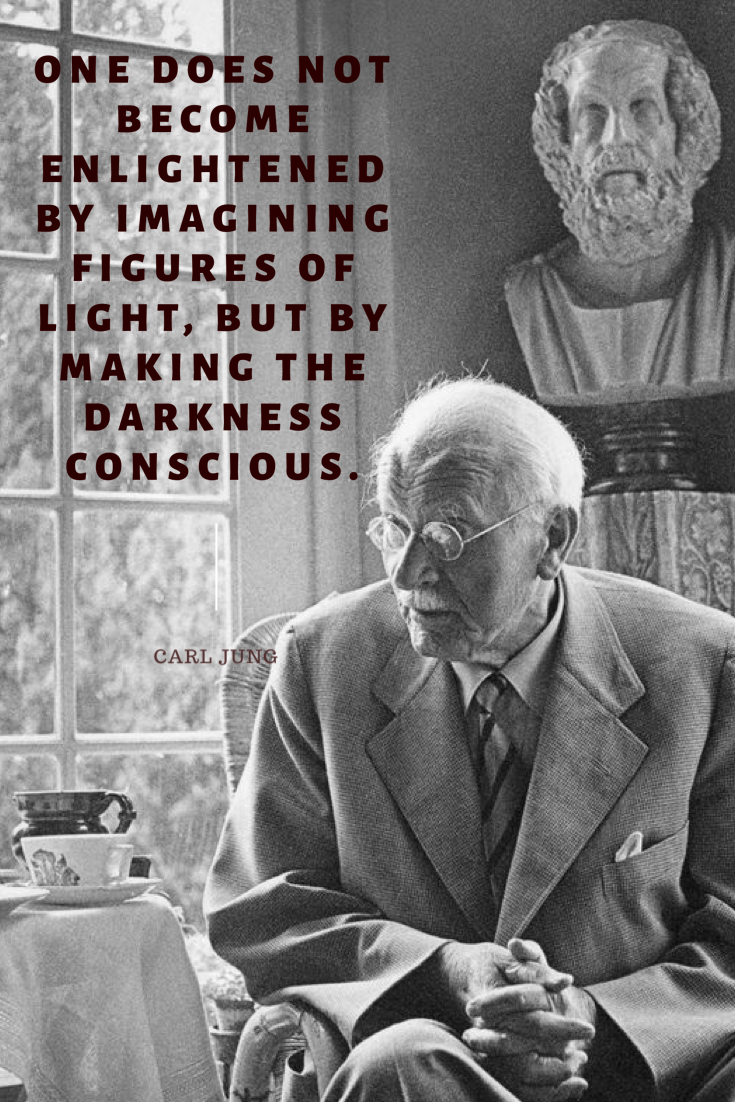I think I share your hesitations here and maybe you can elaborate better idk, but I have seen several different models/descriptors of the shadow functions and they all seem to vaguely get the point across but for whatever reason I haven't found a model that feels fully comfortable/accurate. Maybe because our sources of shame are more individually nuanced, or harder to describe because they are hidden rather than what we are using to flex on the world around us.
Sure, I can give elaborating a go.
Let's say Johnny is an ENTP programmer who one day decides that he wants to deal with the stuff that he's been repressing in his unconscious. He goes to see a psychoanalyst and they begin the process of analysis. As he's lounging in his plush divan, Johnny talks about himself while the psychoanalyst is listening and subtly guiding him with his questions. After a number of sessions, certain patterns begin to emerge about Johnny's unconscious. They manifest in certain slips of the tongue, seemingly nonsensical asides and detours, mood shifts at the mention of certain words or events, etc. Over time, Johnny gets to have a clearer grasp of the content he's been repressing. He can begin to 'face his shadow'.
In this thought experiment, it's clear that Johnny is facing a certain quantity of repressed
content. This content could include, for instance, resentment towards his father for humiliating him in front of his friends when he was 6. The unconscious content is allowed to come to the surface of consciousness. As he works towards facing what happened and acknowledging it, he works towards integrating his shadow. But so far this has nothing to do with learning to reckon with the use of the shadow functions. It has purely to do with content, not functions (in this regard, cf. the function/content fallacy). Johnny seeks to make the formerly repressed content a part of himself, so as to attain psychical quietude. This may, of course, require confronting his father about what happened. But whatever he undertakes to do to integrate the repressed content is undertaken in a conscious fashion. It is not undertaken by means of the shadow functions.
So how do the shadow functions hypothetically manifest themselves? We would have to assume that when the analyst asks Johnny questions and eventually succeeds (with the full involvement of Johnny himself) in laying bare the unconscious content he's been repressing,
that unconscious content is expressed through the shadow functions. In other words, when Johnny uncovers the unconscious content by means of slips of the tongue, asides and meandering detours, mood shifts, etc., he does so in the register of a shadow INTJ. In other words, the unconscious content that Johnny has been repressing has a substance of its own, almost like an independent existence, and it is structured cognitively through the shadow stack: Ni-Te-Fi-Se.
So there are not one, but two kinds of 'uncovering' happening during the analysis: the uncovering of raw content (the repressed thoughts);
and the uncovering of the personality articulating cognitively the raw content (the INTJ shadow).
I accept the first as more or less uncontroversial. People, including Johnny, do have unconscious repressed thoughts, and analysis can help to bring them to the surface of consciousness. It is notoriously difficult to make full sense of the complexity, structure and depth of those thoughts, sometimes to make sense of them full stop (which includes telling them apart from conscious thoughts). Hence why analysis, as a process, usually takes at least 5 years.
But
if it is already very difficult to make sense of the content of the repressed thoughts, how much more difficult it must be to elucidate a full-blown personality, with associated cognitive function-stack, articulating those thoughts! Elucidating such a personality, like shadow INTJ, presupposes an already very well-structured constellation of thought-content. But we have already just seen that the said constellation of thought-content is elusive, messy, mushy... like all repressed content must be. It seems to me somewhat arbitrary to say, on the basis of uncertain premises, that the conclusion is "certainly INTJ". I struggle to see how an articulate shadow-personality could be inferred from inchoate, messy, loosely structured thought-content.
Which brings us back to this idea of differentiation: the more thought-content is undifferentiated, as in the unconscious domain, the more undifferentiated the personality articulating the thoughts must be. But the category: "INTJ shadow" is the opposite of undifferentiated. It is precise and cognitively well-structured. Now, perhaps the unconscious thought-content of an ENTP
really is structured by means of an INTJ shadow personality. I am only claiming that I cannot see enough empirical evidence of this. And on this basis, I take the position with reserve and caution. Maybe Jung was such a spectacularly intuitive psychoanalyst that he was able to derive differentiated structure from undifferentiated thought-content. Maybe. I can't say for certain that he is right or wrong, because, as a non-spectacularly intuitive analyst, I lack the empirical basis to make an informed judgement on the matter.

